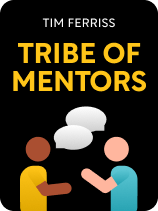

This article is an excerpt from the Shortform book guide to "Tribe of Mentors" by Tim Ferriss. Shortform has the world's best summaries and analyses of books you should be reading.
Like this article? Sign up for a free trial here.
Is a low-risk path the right one for you? Would you take more risk if you had less to lose?
Many people follow the traditional path to success—slowly ascending from one secure job to a slightly better-paying one. However, as recorded in Tribe of Mentors, some of Tim Ferriss’s experts note that constricting yourself to this path might keep you from building a career you’re passionate about.
Continue reading for some advice that can help you figure out your path to success.
Your Path to Success
Actress Richa Chadha notes that the education system typically sets everyone up to follow the same path to success. But, this comfortable, low-risk life might not be your path to success. It actually can be a trap for people with bigger ambitions. If you want to leave a field you’re not excited about, throw yourself into a new pursuit completely; otherwise, it’ll be too tempting to go back to that comfortable life.
(Shortform note: Some research supports Chadha’s assertion that the temptation to fall back to a safer life path can harm your chances of career success. Specifically, the act of formulating a backup plan makes you less motivated to succeed with the initial plan. In one study, researchers offered participants rewards for solving word puzzles, including money and food. However, when they asked participants to come up with backup plans to earn those same rewards on their own, those participants were less motivated to complete the puzzles and performed poorly.)
Actor and comedian Patton Oswalt describes one way to commit to an untraditional life path: Get used to poor, cheap living conditions so you don’t have anything to lose and the risks necessary for an untraditional career don’t scare you away. Entrepreneur Jérôme Jarre took this idea to the extreme, secretly living out of an office building in New York City for several months until his startup began earning profits.
(Shortform note: Arguably, it’s easier to commit to risky life decisions if you’re poor, desperate, and don’t have much to lose—like Jarre was when he lived out of an office building. But what if you’ve already established a comfortable life for yourself and therefore do have something to lose? In this case, you can overcome the fear of total financial failure by temporarily “practicing poverty.” The ancient Greek philosopher Seneca conquered such fears by intentionally setting aside days to practice living below his means, eating less, wearing ragged clothes, and sleeping in a less comfortable home.)
Cryptocurrency pioneer Nick Szabo also advocates for non-traditional career paths, noting that you shouldn’t feel the need to jump constantly from job to job. Unemployment can give you the space and freedom to devote your full attention to the creative ideas that seem the most promising to you.
(Shortform note: Employers may ask you to explain gaps in your résumé in future job interviews. Be prepared to talk about your time off, offering employers an honest explanation of why you were unemployed and any relevant experience you picked up in that time. Alternatively, if you only took a few months off between jobs, you may be able to subtly hide the gaps in your employment history on your résumé by listing the years you worked at each job instead of specifying which months you were hired.)

———End of Preview———
Like what you just read? Read the rest of the world's best book summary and analysis of Tim Ferriss's "Tribe of Mentors" at Shortform.
Here's what you'll find in our full Tribe of Mentors summary:
- Distilled life advice from over 130 world-class experts in various fields
- How to navigate non-traditional career paths, appreciate failure, and more
- Why you should allow a small amount of measured chaos in your schedule






